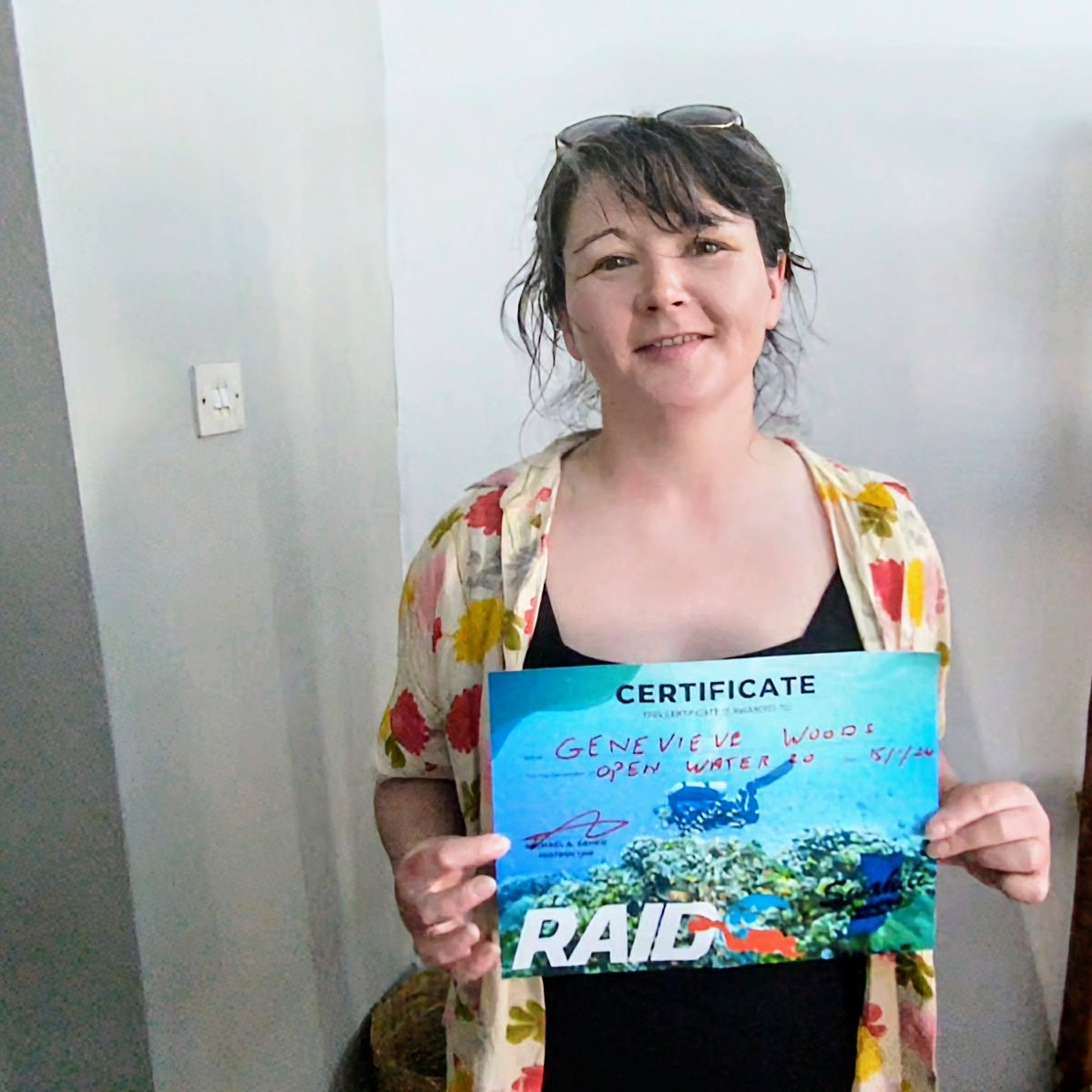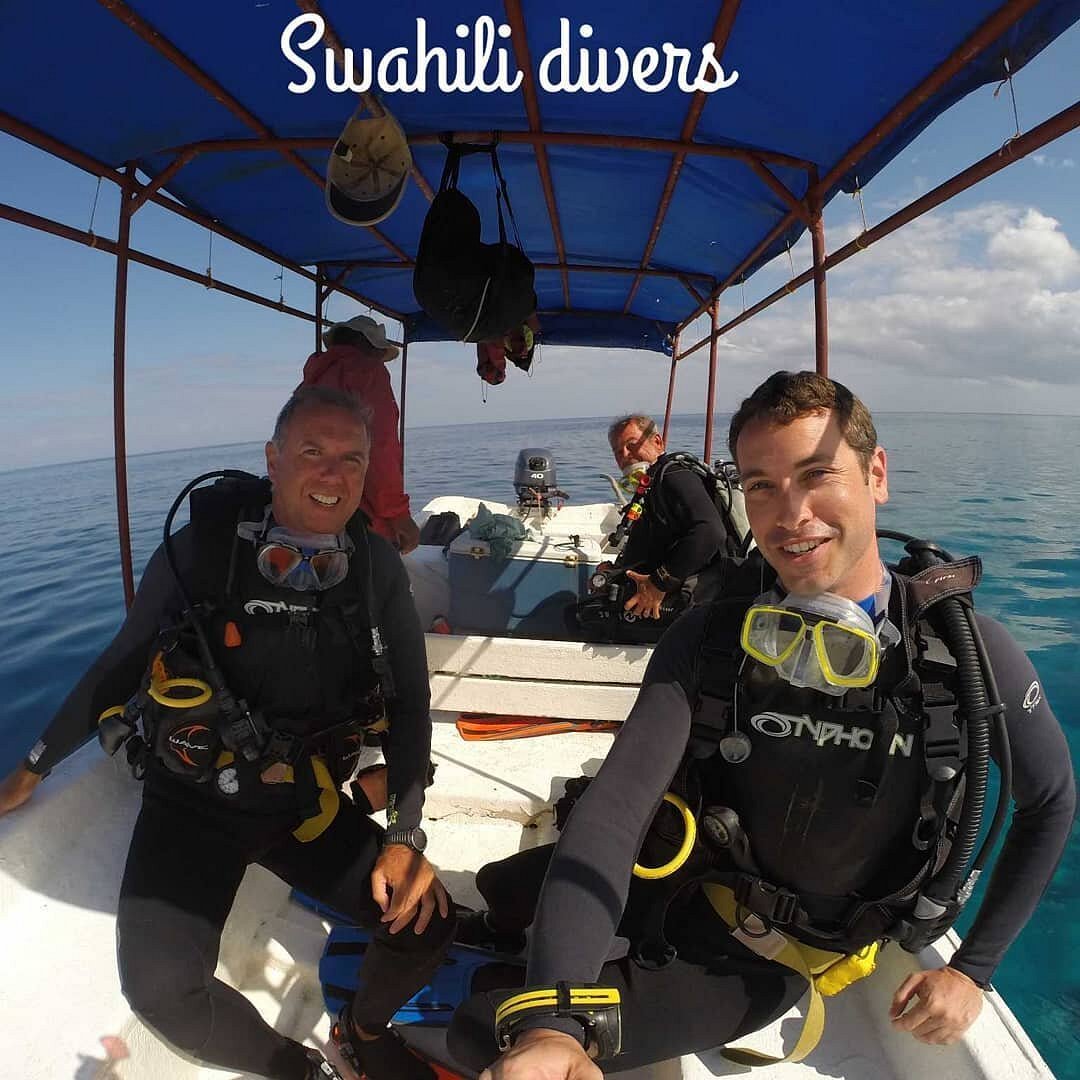The Best Time to Visit Africa: A Comprehensive Guide
Africa is a huge, beautiful continent with a ton to offer visitors. But knowing when to go is important so that your trip is the best it can be.
June to October is the best time to visit Africa if you're looking for good weather overall. It's also the best time to go on safari, as the animals gather around waterholes, making them easier to spot.
If you're planning a scuba diving trip, the best time to visit is also June to October. The seas are calm during this time, and the visibility is excellent.
The best time to travel to Africa will also depend on where you're going.
For example, if you're planning a trip to the Sahara Desert, the best time to go is during the cooler months of October to March. And if you're planning a trip to South Africa, the best time to go is during the spring (September to November) or fall (March to May).
Let’s talk about finding the best time to travel to Africa based on what you’re after – unforgettable safaris, incredible diving, or maybe just a relaxed beach holiday.
Understanding Africa's Seasons
Africa's got very different seasons than you might be used to. No winter, spring, or whatever’s common to the West. Generally, things come down to wet seasons and dry seasons, and their timing changes a lot depending on where in Africa you're headed.
Dry Season
North Africa: The Sahara Desert dominates – vast, arid landscapes. The Atlas Mountains offer a respite from the desert heat, and the Mediterranean coast provides a milder climate.
East Africa: Think savannas, grasslands, and acacia trees. Dry seasons vary a bit – longer and hotter from June to October, shorter and milder from January to February.
Southern Africa: Semi-arid deserts towards the west, lush landscapes to the east. The dry season extends generally from May-October.
Central Africa: Lush rainforests and tropical river basins. While there's a dry season (varies by location), this region gets a fair amount of rain year-round.
Tourist Activities:
Safaris: Absolutely thrive! Animals concentrate around water sources and thinner vegetation makes spotting them easier.
Beach Holidays: Many coastal areas are at their best, offering incredible beach holidays – sunny skies, warm waters, perfect for swimming and sunbathing.
Hiking & Mountain Climbing: Some of Africa's iconic peaks (like Kilimanjaro) are more accessible during drier weather.
Water Sports: Reduced water levels in some rivers can open up opportunities for whitewater rafting and kayaking.
Rainy Season
North Africa: Rain is concentrated along the coast and the Atlas Mountains. The Sahara remains largely dry.
East Africa: The "long rains" (March-May) bring heavier downpours. The "short rains" (October-December) are lighter and more intermittent.
Southern Africa: Wet summers (November-April) bring afternoon showers, lush landscapes, and newborn animals.
Central Africa: Rain is a regular feature throughout the year, though some areas see somewhat drier periods within the overall rainy season.
Tourist Activities:
Nature at its Wildest: Landscapes transform! Witness abundant greenery, dramatic thunderstorms, and migrating birds.
Fewer Crowds and Off-peak Prices: You'll have popular spots more to yourself and might find great travel deals.
Photography: The lush landscapes and dramatic skies offer unique photo opportunities.
Cultural Experiences: Rainy seasons often coincide with local festivals and events.
Indoor Activities: Focus on museums, markets, and cultural experiences in towns and cities.
Here are all the many fun things to do in Tanzania when you get here.
Important Notes:
Regional Variations: Seasons and their intensity differ across Africa. Always research the specific destination and time of year you're considering.
"Green Season": Many call the rainy season the "Green Season". Lush landscapes and abundant wildlife make it a unique and appealing time to visit.
Not a Total Shutdown: Many tourist activities continue during the rainy season. Showers are often short but intense, leaving plenty of time for sunshine in between.
Month-by-Month Weather Guide for Africa: Top Travel Destinations
Here's a compressed monthly weather guide for some of Africa's top tourist destinations. We'll focus on the general trends and highlights, but remember that local variations always exist.
| Month | Cape Town | Kruger Park | Serengeti | Zanzibar | Marrakech | Victoria Falls | Namibia | Masai Mara | Botswana | Rwanda/Uganda |
|---|---|---|---|---|---|---|---|---|---|---|
| January | Warm, sunny, some rain | Lush, some showers | Short dry, good viewing | Dry, sunny, beachy | Mild, some rain | Building, some spray | Mostly dry | Dry, good viewing | Lush, some showers | Short dry |
| February | Warm, mostly dry | Similar to Jan | Dry, warmth increasing | Hot, sunny, peak beach | Mild, pleasant | Flows increasing | Similar to Jan | Dry, excellent | Mostly dry | Dry, good trekking |
| March | Cooler, more rain | Less lush, good viewing | Start of long rains | Wet season begins | Warmer, less rain | Flows decreasing | Dry, great wildlife | Rainy start | Mostly dry | Rains increasing |
| April | Autumn, cooler, rain | Dry season starts | Rainy, dramatic skies | Heavy rains | Warm and sunny | Less water | Mostly dry | Rainy | Dry season starts | Rainy |
| May | Cool, rainy | Dry season, great viewing | Lush, rain diminishing | Still rainy | Hot and dry | Low water levels | Dry, excellent | Rainy continues | Dry, excellent | Rainy, still possible |
| June | Winter, cool/wet | Peak dry, chilly nights | Prime dry season | Dry season starts | Hot and dry | Very low water | Dry, sunny | Less rain, good | Peak dry | Dry, optimal trekking |
| July-Sept | Some sun, cool | Peak dry, sunny | Main dry season, hot | Fantastic beach | Hot and dry | Very low water | Peak dry, sunny | Dry, Great Migration | Peak dry | Dry |
| Oct-Dec | Warming, some rain | Dry winding down | Short rains, lush | Pleasant, some humidity | Warm, occasional rain | Flows starting to build | Dry, some rain | Wildlife concentrated | Lush, some showers | Short rains |
Notes: * Colors indicate ideal seasons: green for dry/beach, blue for lush, yellow for transitional. * Weather patterns can have regional variations. Always research your specific destination.
January
Cape Town, South Africa: Warm, sunny days, perfect for beaches and outdoor adventures. Occasional rain possible.
Kruger National Park, South Africa: Lush and green after summer rains. Wildlife viewing is still great, with occasional afternoon showers.
Serengeti National Park, Tanzania: Short dry season – warm days, cooler nights, excellent game viewing.
Zanzibar, Tanzania: Mostly dry and sunny, perfect for beach time. The ocean is still warm and clear.
Marrakech, Morocco: Mild and pleasant, with some rain possible, great for exploring the city.
February
Cape Town, South Africa: Still warm and mostly dry, ideal beach weather continues.
Kruger National Park, South Africa: Conditions similar to January, green landscapes, good wildlife viewing.
Serengeti National Park, Tanzania: Dry season continues, warmth increasing, fantastic for safaris.
Zanzibar, Tanzania: Hot and sunny, peak beach season. Some afternoon humidity is possible.
Victoria Falls, Zambia/Zimbabwe: The Falls are starting to build up – spectacular views, expect some spray.
March
Cape Town, South Africa: Temperatures start cooling, and chances of rain increase slightly.
Kruger National Park, South Africa: Lushness starts fading, but still good for wildlife. Temperatures remain comfortable.
Serengeti National Park, Tanzania: Start of the long rainy season. Lush scenery, fewer crowds, and potential for good deals.
Zanzibar, Tanzania: Wet season begins. Expect showers, but sunny periods too.
Namibia: Mostly dry, great for desert landscapes and wildlife viewing.
April
Cape Town, South Africa: Autumn in full swing – cooler weather, increasing rain.
Kruger National Park, South Africa: The transition to the dry season starts, and greenery fades.
Serengeti National Park, Tanzania: Rainy season continues, dramatic skies and greener landscapes.
Zanzibar, Tanzania: Heavy rains likely, not the best time for beach holidays.
Masai Mara, Kenya: Rainy season begins, potentially impacting safaris.
May
Cape Town, South Africa: Cool and rainy at times, focus on indoor experiences.
Kruger National Park, South Africa: Dry season starting, and great wildlife viewing as vegetation thins out.
Serengeti National Park, Tanzania: Lush landscapes, rain still possible, but starting to diminish.
Zanzibar, Tanzania: Still rainy, consider other destinations this month.
Southern Africa (Botswana, Zambia): Dry season begins, an excellent time for safaris and seeing Victoria Falls.
June
Cape Town, South Africa: Winter arrives – cool, wet days possible, but some sunny breaks too.
Kruger National Park, South Africa: Peak dry season, fantastic for safaris, but chilly mornings and evenings.
Northern Tanzania Parks (Serengeti, Ngorongoro Crater): Prime dry season, optimal for wildlife viewing.
Zanzibar, Tanzania: Start of the dry season, conditions improving for beach lovers.
Gorilla Trekking (Rwanda, Uganda): Dry season, good conditions for trekking, but permits book up fast.
July-September
Southern Africa (Namibia, Botswana, Zimbabwe): Peak dry season, excellent safari conditions, sunny days, cool nights.
East Africa (Kenya, Tanzania): Main dry season, hot days, prime time for the Great Migration in the Serengeti and Masai Mara.
Zanzibar & Pemba Island, Tanzania: Fantastic beach weather returns, great diving conditions.
October-December
Southern Africa: Dry season begins winding down, and occasional rain returns. Still good for wildlife viewing.
East Africa: Short rains begin. Wildlife remains concentrated, and lusher landscapes return.
Zanzibar & Pemba Island: Beach weather remains pleasant, but some humidity increases.
Best Time to Visit Africa for Safari
Hands down, the dry season is king for safaris. Generally, that's between June and October across most of East and Southern Africa.
With less water around, animals gather at rivers and waterholes – which is awesome because it means you don’t have to drive super far to find them. Plus, less bush means easier spotting!
Wildlife and Migration Viewing
If you're dreaming of the Great Migration, that massive movement of wildebeest and zebra, you've got to time your trip right. Here's a quick guide:
January to March: Calving season in the southern Serengeti.
June to July: The herds start moving north and into the Western Corridor of the Serengeti.
July to September: Amazing river crossings in the northern Serengeti, making for action-packed safaris!
October to December: The migration moves back south through the eastern Serengeti.
Best Time to Visit Africa for Scuba Diving
Dreaming of diving in Africa? If amazing underwater adventures are your thing, here's what believe to be the best time to visit Africa for scuba diving.
These Tanzanian islands are awesome for diving! The best time is generally from June to October, with calm seas and great visibility. December to February can also be good. But avoid the rainy season (March to May), when waters get murkier.
Dive excursions in Africa!
Join Swahili Divers for thrilling and unforgettable dive experiences on Pemba Island, Zanzibar.
Other Destinations:
Explore world-class diving in Mozambique, South Africa, and the Red Sea. The best time to visit these spots will depend on the specific location and what marine life you're after.
Note: Even in the best diving seasons, I had a few tourists who got seasick. Remember to bring meds if you might get sick on a boat!
Here are some of Africa’s top scuba diving destinations you should consider.
Weather Conditions: Getting More Specific
Africa's weather is hugely diverse across regions. Here's a quick heads-up:
East Africa: Generally, two dry seasons and two wet seasons. The long dry season (June-October) is hotter. Here are my absolute top places to visit in East Africa.
Southern Africa: Dry winters (May-October) and wet summers (November-April).
North Africa: Hot, dry summers and milder winters. The Sahara can get surprisingly cold at night.
If the heat’s a concern, grab a mini fan! These little guys have been a lifesaver for many of my tourists during the midday tours.
Best Time to Visit South Africa
South Africa’s unique! Here's why:
Cape Town: Think Mediterranean climate! Warm, dry summers (December-February) are amazing for beaches and Table Mountain. Winters (June-August) get wetter.
Kruger National Park: Dry season (May-October) is best for game viewing. Summer brings lush landscapes, newborns, and occasional afternoon showers.
Best Time to Visit Tanzania
Tanzania’s a dream – safaris in the Serengeti National Park, chilling on Zanzibar, the spice farms!
Join 1,7 million people who visit Tanzania and Zanzibar every year, the safest region in East Africa.
Northern Parks (Serengeti, Ngorongoro): June-October is the main dry season, and it's fantastic. But don't ignore the "short dry season" (January-February) - it offers fewer crowds and greener landscapes.
Zanzibar, Pemba Island, Spice Farms: Dry seasons (June - October, and December-February) are best. Avoid the heavy rains (March-May).
Bonus Tip: Even a bit of Swahili goes a long way. "Jambo" (hello), "Asante" (thank you), and knowing your numbers helps!
Here’s a full guide to Tanzania’s weather.
Summer in Africa
"Summer" in Africa doesn't always match the June-August idea in other parts of the world. Here's what you need to know:
Southern Hemisphere: Summer is December-February. Expect hot weather, and potential rain in some areas, but also lush landscapes and great deals.
Northern Hemisphere: Summer is June-August. Think hot and dry in the Sahara, but milder along the Mediterranean coast.
Planning Tips for Your Dream Africa Trip
Now, let's turn your dream into reality! Here's how to plan your trip based on the best timing:
Decide on your priorities: Safari, diving, beach time, or a combo. This determines the best time and regions to focus on.
Budget: Peak seasons (dry seasons, migration) often mean higher prices. The wet season can be amazing and way more affordable.
Flexibility: If your dates are strict, some compromises might be needed But if you're flexible, chasing the best season can unlock awesome experiences.
Book early: Popular lodges and dive operators fill up fast, especially during peak season. Plan ahead!
Conclusion
Africa is incredible any time of year, but choosing the right time for your goals elevates your trip to a whole new level. Remember:
Dry season: Better for safari and (generally) beach holidays
Wet season: Lush, fewer crowds, often better deals
The Great Migration: Timing is everything
Dive destinations: Seasons differ greatly, so be specific
Reputable Tour Operators: A good operator can customize your trip to the perfect time and place, especially if you're combining activities like safari and diving.
A Personal Note: I've been guiding tourists in Tanzania for years. The best time to visit? That's the time that's right for YOU. Don't let seasons hold you back – Africa is always ready with something special to offer. You get to decide what kind of adventure you want!
Find the best time to visit Tanzania for your perfect trip

"We enjoyed some wonderful dives with Swahili Divers during our holidays in Pemba this July/August. Mike and the team are very professional, and always ready to support and find solutions. The dive sites are very diverse and can be used for junior open water divers up to very experienced ones. That means shallow water to super nice wall dives. Thanks for the wonderful time with you!! "
Regards, Nicole & Patrick and the 3 kids;-)

"I came to Pemba to see the coral. It was beautiful, in good condition, and full of fish and nudibranchs. The diving staff of Swahili divers are all excellent. Equipment was all included and was spot-on. My partner completed her Open Water certification in a few days and we were both totally satisfied."
Evo S.







